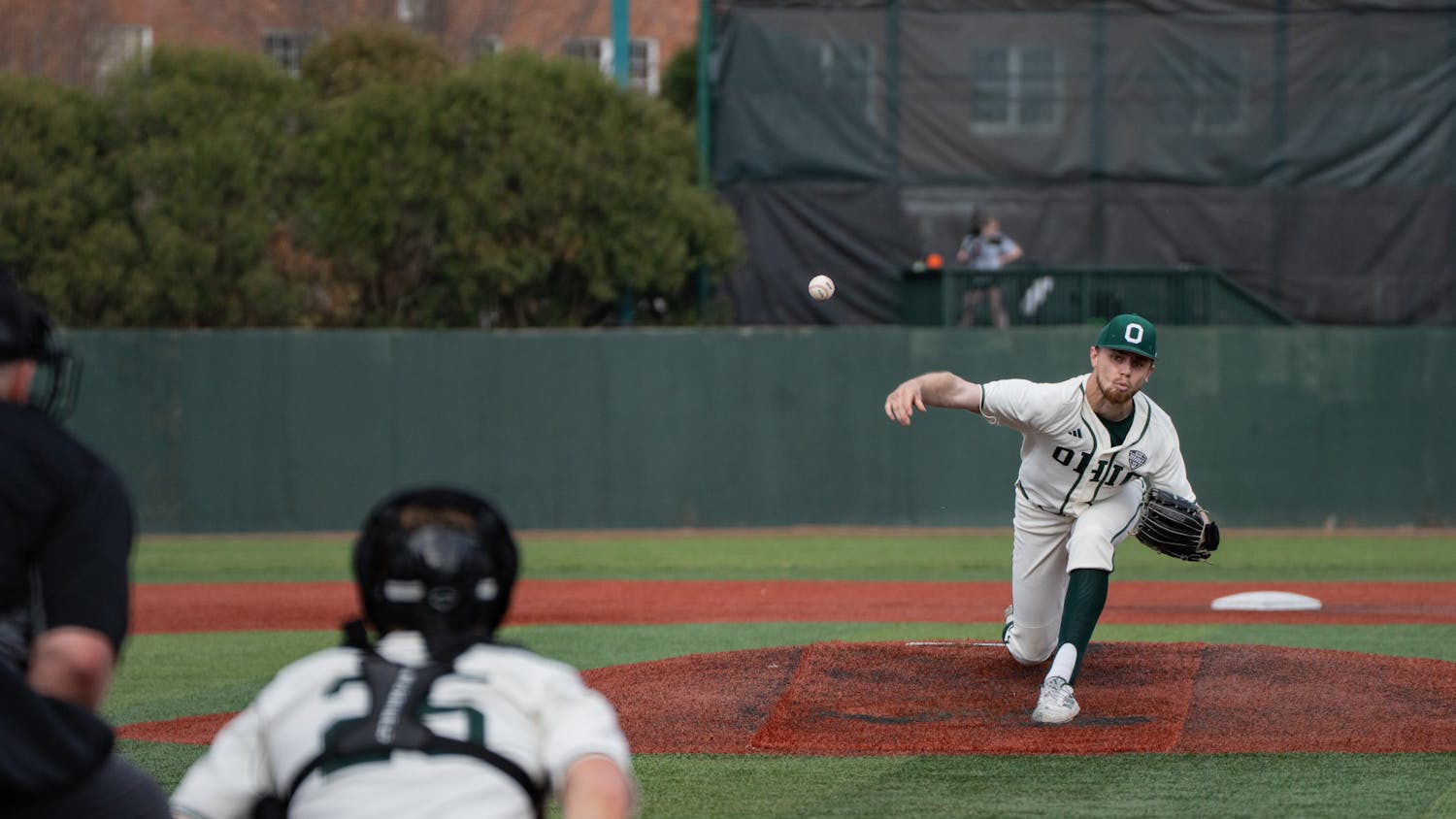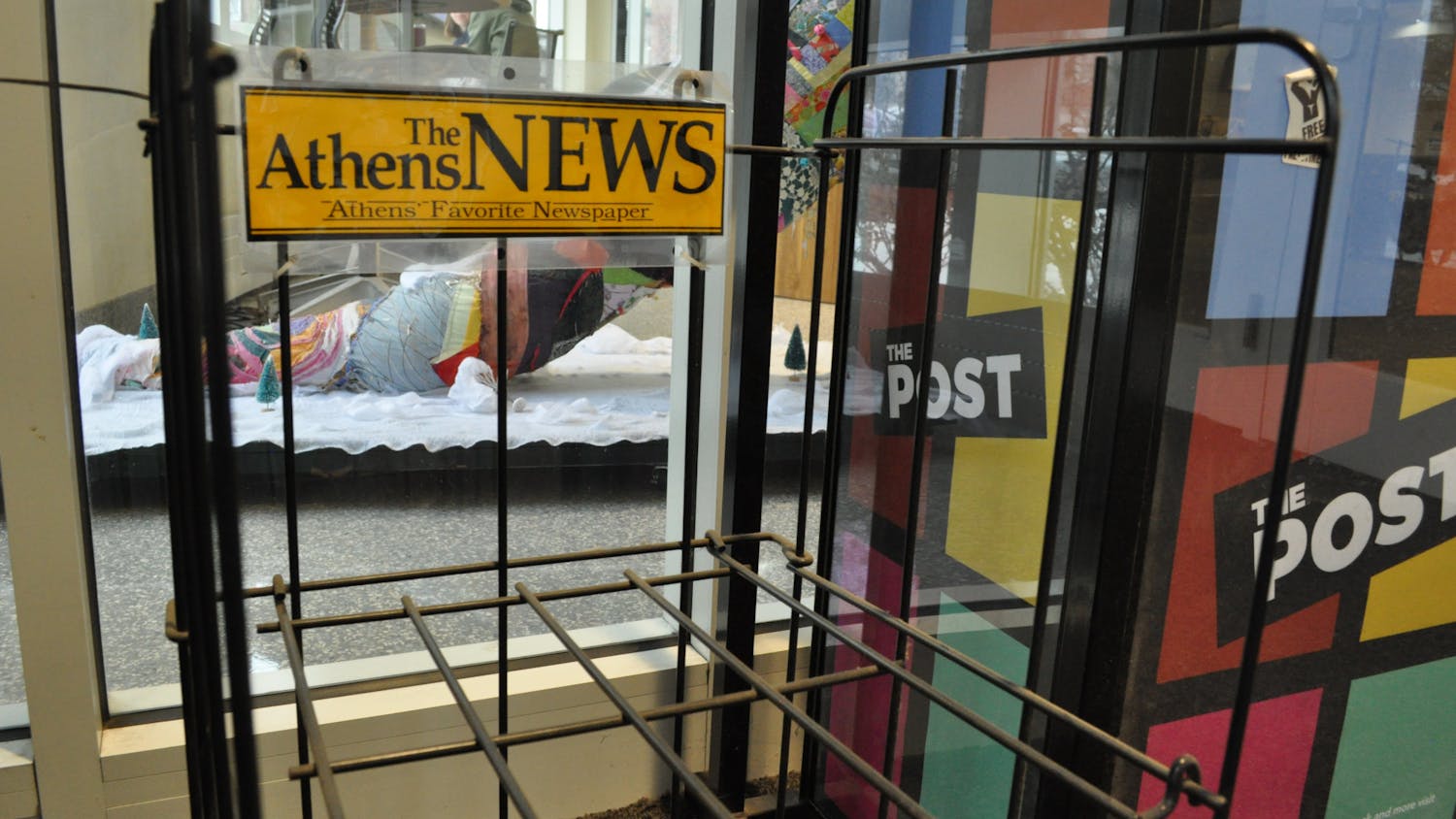At Ohio University, there are numerous funding resources available to students, faculty and staff to offer them financial support through the research and projects in which they take part.
Many of those resources have existed at the university for decades now, providing necessary financial assistance to those who applied. One of these possible funds is the Ohio University Research Committee, or OURC, which is a competitive award of up to $8,000 granted specifically to faculty and staff who are pursuing their own research project.
Ronan Carroll, associate professor of biological sciences, is currently on the board that oversees the applications, but he has also been a recipient of the OURC award himself.
Carroll’s research began after hiring a researcher into his lab who specialized in interactions between two bacteria that were common in patients with cystic fibrosis. The two put their heads together to combine their knowledge of these respective types of bacteria to understand how their interactions would impact cystic fibrosis patients.
Carroll said the grant money helped to enlighten the pattern they were recognizing.
“We got the money from OURC as a little bit of starter money to get us involved in this and try to tease apart a little bit more information in detail about what exactly was going on with this unusual interaction between these bacteria,” Carroll said.
Chao-Yang Lee, associate professor of communication sciences and disorders, was one of four recipients awarded the OURC funding for spring 2021, and he was awarded $7,991 for his research project titled “Can Dumplings Interfere with Sleep in a Cocktail Party? Processing Multi-Talker Speech in Auditory Word Recognition.”
Lee said his research focused on the way in which human listeners process spoken information, particularly through Mandarin Chinese. The language, Lee said, is special because it utilizes melodies to distinguish word meanings. With slight variations in tone, a completely different word has been spoken. The word for “dumplings” and “sleep” in Mandarin, Lee said, contain similar consonants and vowels, with slight changes in the melody with which it is spoken.
“Our research question is, ‘As a speaker of Mandarin, how do you actually process this melodic information, which we call fundamental frequency information when you are dealing with (something like) a cocktail party speech, where you have a lot of speakers talking at the same time?’” Lee said. “So, what we're trying to do here is to manipulate these two kinds of information systematically so that we can get a sense of how Mandarin listeners process this fundamental frequency formation.”
Aside from prior existing research funding options like OURC, in the last year, a brand new funding resource was created called the undergraduate summer internship.
Roxanne Male-Brune, director of grant developments and projects, said this newly developed funding resource was inspired by the financial needs students have due to COVID-19.
“During COVID, a lot of undergraduates did not have the opportunity to go and do research and creative activity, and this was a huge problem,” Male-Brune said. “So, what we wanted to do was to create an opportunity where they could do summer internships and sort of catch up.”
While the grant began as a way for students to “catch up” with their research, Male-Brune said the purpose for the grant shifted as students’ needs changed, which caused the funding team to create this one-time-only program.
“What we found is that there was a real need for student stipends, especially for some of our students from lower socioeconomic backgrounds,” Male-Brune said. “So, it will pay students to do summer internships with faculty on campus, and it can cover the traditional scientific research … and the funding will be prioritized for people who have financial need as determined by pell eligibility.”
Lee said the inclusion of funding resources like the one he received at the university are significant in that they allow important research to persist.
“In order to do research, we need to get research funding to buy equipment, to pay participants, to hire students to work with us,” Lee said. “So, I think these university internal funding sources are very important to get the project started.”
Male-Brune said these funds enable students to pursue research and creative activities in the fields they have chosen and expand their experience to real-world application.
“Students need to be able to apply what they learn in the classroom,” Male-Brune said. “I think it just gives them a more well-rounded experience … and I just think it's a great way for students to grow.”






